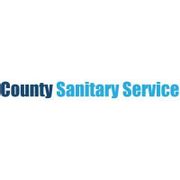How Does a High Water Table Affect Septic Systems?

Homeowners with septic systems rarely think about the nearby water table and its impact on their plumbing. However, it’s essential to know about its effects once heavy rains begin to fall, and aquifer levels become higher than usual. If you have a septic tank and drain field for wastewater disposal, consider the following information about the water table.
Why Does a High Water Table Matter to Your Septic System?
The septic system works by breaking down waste in the septic tank and filtering effluent through the drain field. Slowly, the biologically treated water flows down to the aquifer or water table, which should be low in the ground to ensure thorough filtration.
However, there are instances when groundwater levels rise, often because of heavy rainfalls and flooding. When that happens, your drain field may get inundated due to surrounding oversaturation. It can also cause excess water and effluent to flow back into the septic tank, quickly filling it to capacity. Once overloaded, it can lead to sewage backups, raw sewage aboveground, slow-moving drains, and widespread clogging.
How Can You Prevent Septic Issues Associated with Rising Water Tables?
A high water table isn’t the end of your septic system, and there are workarounds to this issue. Consider the following:
-
Conserve Water: Even if there are no storms or heavy rains predicted, take steps to reduce water consumption and avoid overloading the septic tank. Run the dishwasher only with a full load or avoid flushing the toilet frequently.
-
 Fix Active Leaks: A leaky faucet, toilet, or showerhead slowly adds wastewater to the septic tank and may also raise your water bill. Take the time to spot and repair any leaks for a more efficient system.
Fix Active Leaks: A leaky faucet, toilet, or showerhead slowly adds wastewater to the septic tank and may also raise your water bill. Take the time to spot and repair any leaks for a more efficient system. -
Redirect Water Flow: Refrain from letting the sump pump, gutters, downspouts, and washer discharge directly into the leach field. Instead, have these drain to the surrounding soil.
-
Mind the Drain: Be more prudent about what you flush down the drains. Non-biodegradable items, such as paper towels and feminine hygiene products, can clog the drain or cause the septic tank to fill up quickly. Medicines and harsh chemicals can also deplete the septic system of the bacteria it needs to decompose organic material.
-
Pump Regularly: In places with high water tables, regular pumping is crucial to prevent possible flooding in the septic system. An interval of three to five years is typical, but if you have a high aquifer, it’s best to pump the tank more frequently.
When you need top-notch care for your septic system, trust the trained professionals at Notestone County Sanitary Service in Chillicothe, OH. Serving homes and businesses in and around Ross County, they’ve provided first-rate septic services, including septic pumping, sewer cleaning, and inspections, since 1956. Call (740) 772-1189 today to schedule routine septic maintenance or visit them online for more information.
About the Business
Have a question? Ask the experts!
Send your question

